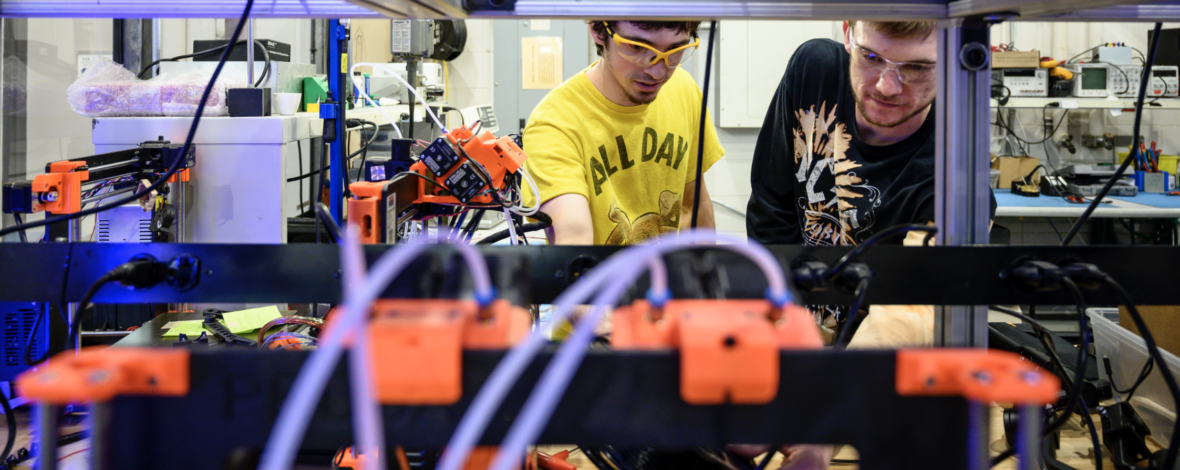
More than 150 electrical engineering and computer science students will be in line for scholarships, through a new program headed up by Boise State University.
Boise State, the College of Western Idaho and the College of Southern Idaho will form a consortium to support high-achieving, low-income students with demonstrated financial need.
“This is an incredible opportunity for Idaho and Boise State as we begin building a better engineering and computer science educational ecosystem for Idaho students through our community college partnerships,” said Don Plumlee, associate dean of academic affairs for Boise State’s College of Engineering. “New pathways into technical careers will support Idaho industry and have a positive impact on our rural communities as well.”
The National Science Foundation-funded program will award nearly $5 million in scholarships over six years. The money will go to full-time students seeking associate’s and bachelor’s degrees.
Community college students will receive a two-year scholarship, and then will receive ongoing support as they pursue a bachelor’s degree at Boise State.
“It’s as if a first-year engineering or computer science student at these other Idaho institutions is also a first-year Boise State student,” said JoAnn S. Lighty, dean of Boise State’s College of Engineering..
This will be the largest Scholarships in Science, Technology, Engineering and Mathematics, or S-STEM, grant awarded in the state, Boise State said in a news release.
U of I seeks to encourage Indigenous students to pursue STEM
The University of Idaho will share in a five-year federal grant designed to encourage American Indian and Alaskan Native students to go into STEM careers.
Cultivating Indigenous Research Communities for Leadership in Education, or the CIRCLES Alliance, will cover graduate school for 12 students in the STEM disciplines of science, technology, engineering and math. The program will also help prepare Indigenous teachers for K-12 schools and community learning sessions.
The goal is to provide role models that encourage Indigenous teachers to pursue STEM careers.
“Indigenous people do not come to STEM as empty vessels. Indigenous worldviews and ways of being in relationship with world have helped Indigenous people to live in this place we call the Americas for millennia,” said Philip Stevens, director of American Indian Studies and an associate professor in anthropology at the U of I. “To understand the complexities of our planet and universe, we need complex, sophisticated and diverse thinkers and communities.”
The U of I will receive $2 million of the $10 million National Science Foundation grant. The research team also includes universities and institutions in Montana, New Mexico, North Dakota, South Dakota and Wyoming.
NNU to launch semiconductor engineering program
Northwest Nazarene University will launch a new concentration in semiconductor engineering.
The Nampa-based university will start the program in the fall of 2023.
The news comes weeks after Micron Technology broke ground on a new, $15 billion semiconductor “fab” plant, expected to create thousands of new jobs in the next few years.
“The Boise Valley and greater Northwest is home to several growing semiconductor engineering companies,” Stephen Parke, a professor of semiconductor engineering, said in an NNU news release. He said the new NNU program “will equip our students to enter this exciting career path right here in the Boise Valley and throughout the United States.”
The concentration will offer specialized classes, internships and fab experience in several areas, including semiconductor materials and devices, microelectronic circuit design, process fabrication and advanced packaging and testing.
